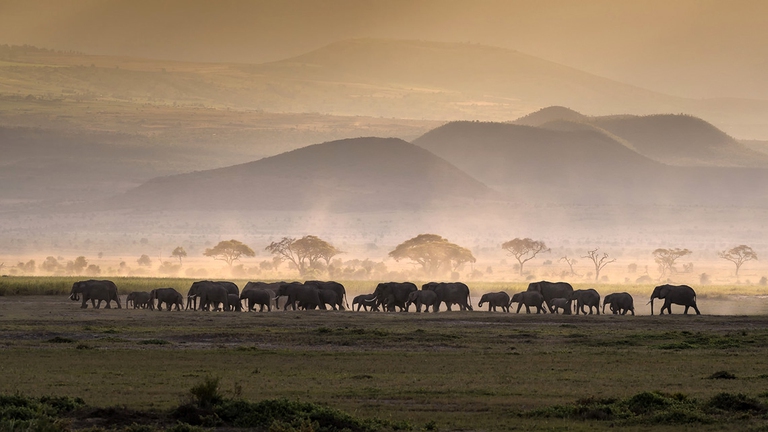
South African court dismisses a major lawsuit by 140,000 Zambian women and children against Anglo American for Kabwe lead poisoning. A setback for affected communities enduring the lasting impact of lead contamination.
The worst case of elephant poaching in African history took place very close to a wildlife sanctuary in Botswana, which was supposed to be their last safe haven.
Botswana was considered the last safe haven for African elephants (Loxodonta Africana), a place where these animals could live and reproduce without being constantly threatened by poachers, thanks to effective national laws protecting them. Nevertheless, the country was the scene of the largest single known elephant massacre ever to take place in Africa. A group of researchers from the Botswana-based NGO Elephants Without Borders identified the carcasses of 87 animals near the Okavango Delta wildlife sanctuary during an aerial survey.
According to research carried out by International Union for Conservation of Nature (IUCN), the African elephant population is continuously dropping and currently counts only 415,000 specimens: numbers have decreased by 20 per cent between 2006 and 2015 mostly due to poaching for their precious tusks. Botswana is home to the largest elephant population in the world with more than 130,000 specimens. The animals found dead there were killed a few weeks ago for their ivory.
Dozens of #elephants killed near Botswana wildlife sanctuary! Elephants Without Borders, is conducting an aerial survey, The scale of poaching deaths is largest seen in Africa and coincides with Botswana’s anti-poaching unit being disarmed. https://t.co/dNQYksJwMt #wildlifecrime pic.twitter.com/4lCBD5qzxo
— Global Elephants (@GlobalElephants) 3 settembre 2018
“I’m shocked, I’m completely astounded. The scale of elephant poaching is by far the largest I’ve seen or read about anywhere in Africa to date,” Mike Chase, biologist from Elephants Without Borders said. As stated earlier, elephants considered Botswana a safe place, and animals originally coming from Angola, Namibia and Zambia have stationed themselves within the country’s borders. Poaching has been a rare occurrence until now thanks to well organised and well equipped anti-poaching units.
Nevertheless, the government made cuts to these in May, following the election of the new president Mokgweetsi Masisi, who disarmed the Department of Wildlife and National Parks without giving any explanation. This, in combination with the decline of elephant populations elsewhere, may have led poachers to violate what was supposed to be the last elephant sanctuary.
“This tragic new development in Botswana demonstrates once more the limits of actions against poachers on the ground, which are absolutely necessary but not sufficient in tackling the problem,” Andrea Crosta, who founded Elephant Action League to fight the illegal wildlife trade by deploying strategies used in the intelligence field, told us. “This is due to the elevated number of potential poachers employed by traffickers, widespread poverty and African governments’ difficult in acting strategically”.
Read more: Andrea Crosta. The man who uses his intelligence network to prevent poaching and save endangered animals
“Tourism connected to wildlife is very important for our economy, our jobs and our international reputation,” Mike Chase explained. The slaughter of elephants, deeply intelligent ancient creatures we don’t yet fully understand, will also have dire consequences on African ecosystems and economy.
Siamo anche su WhatsApp. Segui il canale ufficiale LifeGate per restare aggiornata, aggiornato sulle ultime notizie e sulle nostre attività.
![]()
Quest'opera è distribuita con Licenza Creative Commons Attribuzione - Non commerciale - Non opere derivate 4.0 Internazionale.
South African court dismisses a major lawsuit by 140,000 Zambian women and children against Anglo American for Kabwe lead poisoning. A setback for affected communities enduring the lasting impact of lead contamination.
Controversial African land deals by Blue Carbon face skepticism regarding their environmental impact and doubts about the company’s track record, raising concerns about potential divergence from authentic environmental initiatives.
Majuli, the world’s largest river island in Assam State of India is quickly disappearing into the Brahmaputra river due to soil erosion.
Food imported into the EU aren’t subject to the same production standards as European food. The introduction of mirror clauses would ensure reciprocity while also encouraging the agroecological transition.
Sikkim is a hilly State in north-east India. Surrounded by villages that attracts outsiders thanks to its soothing calmness and natural beauty.
Sikkim, one of the smallest states in India has made it mandatory for new mothers to plant saplings and protect them like their children to save environment
Chilekwa Mumba is a Zambian is an environmental activist and community organizer. He is known for having organized a successful lawsuit against UK-based mining companies.
What led to the Fukushima water release, and what are the impacts of one of the most controversial decisions of the post-nuclear disaster clean-up effort?
Nzambi Matee is a Kenyan engineer who produces sustainable low-cost construction materials made of recycled plastic waste with the aim of addressing plastic pollution and affordable housing.








